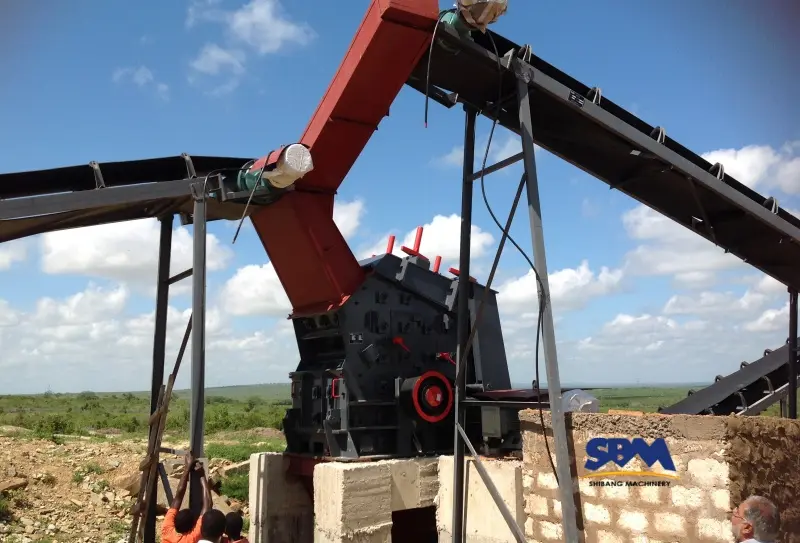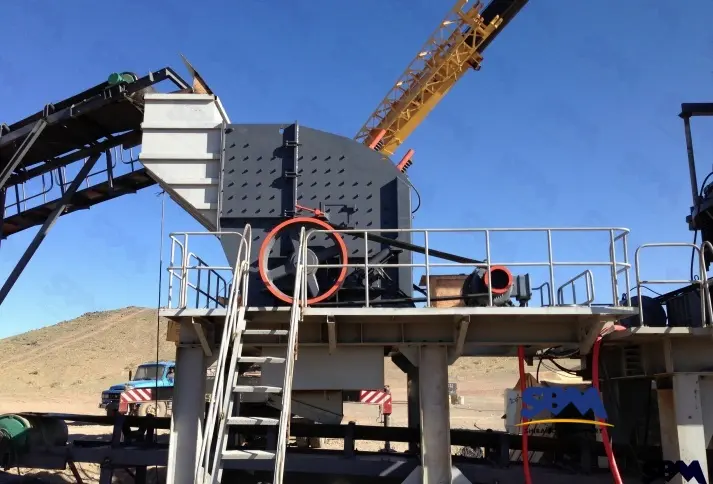Email: [email protected]
Top 6 Advantages of Mobile Jaw Crushers (And Why They Outperform Fixed Units)
Mobile jaw crushers are reshaping the global resource development landscape with multiple advantages such as “plug and play” integrated design and autonomous mobility. From Indonesian volcanic rock quarries to the cobalt ore belt in the Democratic Republic of Congo in Africa, the equipment uses a hydraulic crawler drive system and modular structure. A single machine has achieved a material handling capacity of 85-670 tons/hour. The installation cycle of the traditional fixed production line of 3 days is compressed to 3 hours of on-site commissioning.
In a highway expansion project in Southeast Asia, a mobile unit equipped with an intelligent wireless control system reduced the aggregate transportation cost by 47% through the “raw material on-site processing” mode. Its symmetrical V-shaped crushing chamber design reduces the energy consumption of basalt crushing by 22% compared with traditional equipment. According to industry forecasts, the global market size of this type of equipment will expand at an annual compound growth rate of 1.8% between 2023 and 2033. Its technological evolution is shifting from simple mechanical improvements to the reconstruction of the industrial ecology of “crushing as a service”. For example, a gold mine project in West Africa achieved real-time crushing ratio adjustment and preventive maintenance of the Ghana mine by the Sydney headquarters through a mobile crushing station equipped with a 5G module.
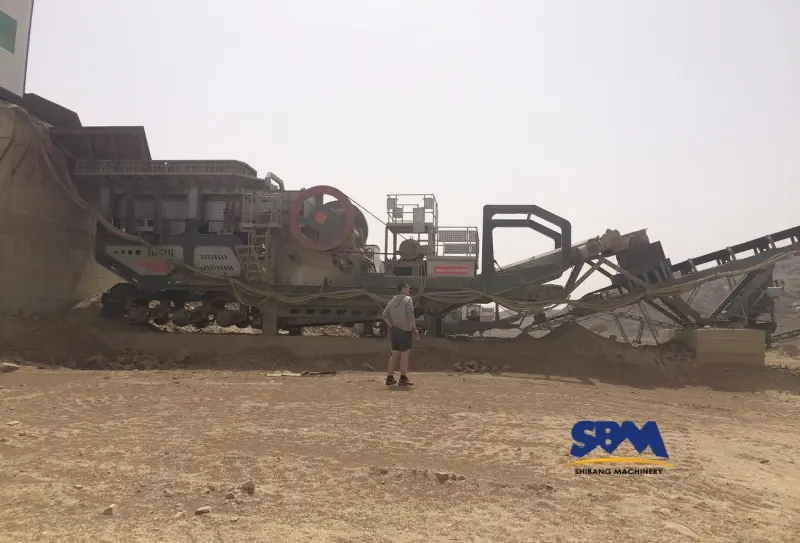
1. Unmatched Mobility for On-Site Crushing
Mobile jaw crushers’ compact design enables easy mobility, allowing entire units to be transported fully assembled—eliminating disassembly costs and site downtime. For instance, a Texas quarry project used these crushers across multiple limestone sites, cutting assembly, transportation, and labor expenses by 40%.
Key features enabling mobility include:
- Compact chassis design.
- Self-propelled systems with hydraulic drives for quick setup.
2. Enhanced Operational Efficiency
Modern portable jaw crushers integrate advanced technologies to maximize output. The SBM Mobile Jaw Crusher, for instance, combines a vibrating feeder and hydraulic adjustment system to achieve a crushing capacity of 10–800 t/h, depending on the model.
Advantages include:
- Reduced energy consumption: Units like SBM’s mobile crushers use PLC control systems to optimize power usage.
- Pre-screening capabilities: Built-in feeders separate oversized materials before crushing, improving workflow.
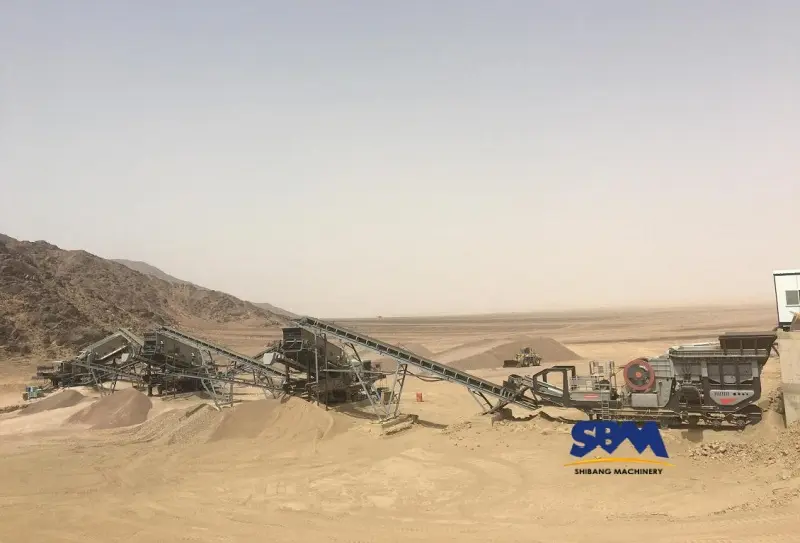
3. Adaptability to Diverse Environments
Portable jaw crushers excel in challenging terrains, from Arctic mining sites to urban construction zones. A Canadian gold mining operation reported a 25% productivity boost using a diesel-powered mobile crusher to process ore directly at the extraction site.
Key adaptability features:
- Adjustable discharge ports (e.g., 60–300 mm in European jaw crushers).
- Compatibility with hybrid power systems for off-grid applications.
4. Cost Savings and Scalability
By eliminating the need for fixed infrastructure, portable units reduce upfront investments. A Swedish contractor saved €150,000 annually using a modular aggregate process crusher for small-scale projects.
Cost benefits include:
- Lower labor costs due to automated controls.
- Scalability for phased projects (e.g., adding a secondary cone crusher).
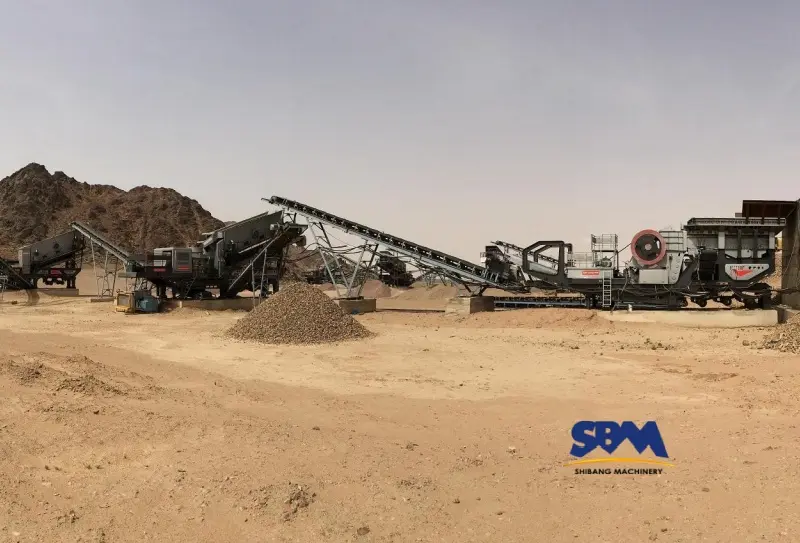
5. Environmental and Regulatory Compliance
Portable jaw crushers address growing concerns about jaw crushers’ environmental impacts. For example:
- Noise reduction: Advanced models like the C6X series operate at ≤75 dB, meeting EU noise regulations.
- Dust suppression: Integrated water spray systems minimize particulate emissions.
Case Study: A UK recycling plant achieved zero waste-to-landfill status using a mobile unit with Tier IV-compliant engines.
6. Future-Ready Technology Integration
Leading manufacturers like SBM are embedding smart technologies into portable crushers:
- Remote monitoring: Real-time diagnostics via IoT sensors reduce maintenance downtime.
- AI-driven optimization: Adjust crushing parameters based on material hardness.
Mobile vs Fixed Jaw Crusher: Which Is Better?
Mobile vs Fixed Jaw Crusher: While fixed crushers suit large-scale, long-term projects, portable jaw crushers dominate in flexibility and cost-efficiency. For instance, Australian mining companies increasingly favor mobile units for short-term mineral exploration due to faster ROI.
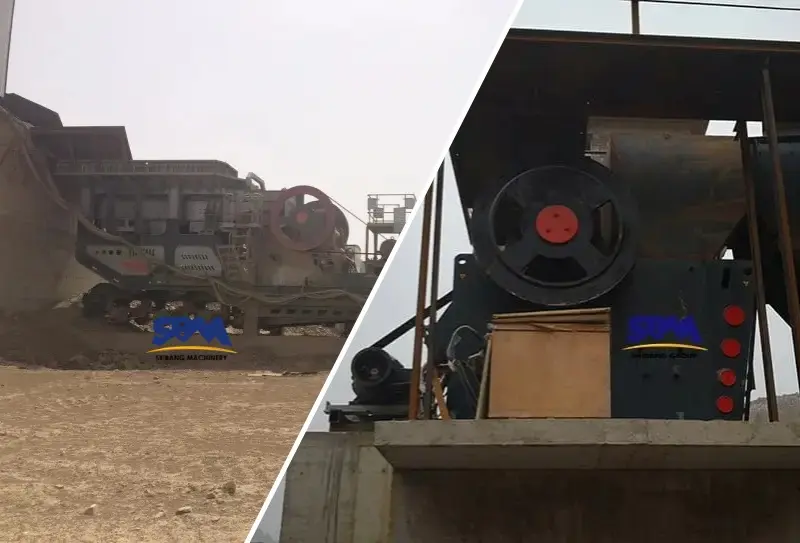
Global Applications and Case Studies
- USA: A highway project in California used a mobile crusher type to recycle 500,000 tons of concrete on-site.
- Australia: Iron ore processors rely on portable units to adapt to fluctuating demand.
Mobile jaw crushers have revolutionized material processing, providing unmatched on-site flexibility while meeting green operation standards. As industries move toward environmentally friendly solutions and flexible and changeable workflows, these compact powerhouses are now the backbone of modern worksites. Operators seeking dynamic performance can take advantage of advanced systems. This fusion of portability and precision engineering redefines project scalability in temporary urban projects and remote mining operations.
Headquaters Office
Whatsapp:+8615225176731
Email: [email protected]
Address: No. 1688, Gaoke East Road, Pudong new district, Shanghai, China.
Website: https://www.mill-sbm.com/
Article Contents
Recent Posts
- Affordable Impact Crusher: A Game-Changer for Small Construction BusinessesSmall construction companies often face budget constraints, yet need reliable equipment – an affordable impact crusher. This crusher can bridge the gap, providing efficient material processing without a huge capital…
- Impact Crusher for Hard Rock Processing: A Global PerspectiveProcessing hard rock minerals such as granite, basalt or iron ore requires a crushing system that combines mechanical durability with operational precision – and impact crusher excels in this regard.…
- Top 6 Advantages of Mobile Jaw Crushers (And Why They Outperform Fixed Units)Mobile jaw crushers are reshaping the global resource development landscape with multiple advantages such as “plug and play” integrated design and autonomous mobility. From Indonesian volcanic rock quarries to the…

